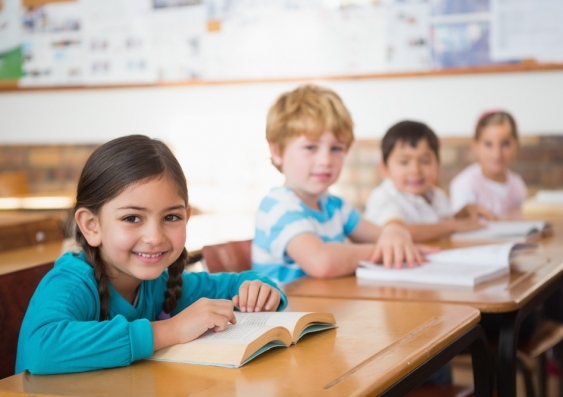Children’s literacy: what works and why?
A conference at UNSW on 15 November will bring together leading academics and practitioners to explore successful strategies for improving students’ literacy
A conference at UNSW on 15 November will bring together leading academics and practitioners to explore successful strategies for improving students’ literacy

Clare Morgan
UNSW Media & Content
(02) 9385 8920
clare.morgan@unsw.edu.au
Children’s literacy skills remain a focus of education policy, with the NSW Government recently launching a $340 million strategy aimed at boosting numeracy and literacy results in the State. This new strategy includes a heightened testing regime, beginning in Kindergarten and continuing to the end of Year 12, in 670 schools over the next four years.
But when it comes to literacy, which methods work best? And why are some more effective than others? A conference at the University of New South Wales (UNSW) on 15 November, "Literacy: What works and why?", will bring together leading international and Australian academics and practitioners in the field to examine two major areas of literacy learning – acquisition and development – and explore current problems and issues.
Organised by UNSW’s School of Education and the NSW Institute for Educational Research, the conference will provide opportunities to disseminate knowledge of successful literacy teaching and learning, evaluate a range of perspectives including early intervention and comprehension, provide examples of innovative and effective practice, and promote cross-institutional professional networks.
Key issues that will be discussed will include evidence-based literacy teaching, beginning to read, early and later intervention, comprehension in early and later years, writing, assessment for teaching, and literacy for students from language and culturally diverse backgrounds.
The conference’s keynote speakers are Dr Peter Freebody, from the University of Sydney, Dr Janet Scull, from Monash University, and Janice Farmer-Hailey, from the NSW Department of Education. Other speakers include Dr Ann Ballantyne, Leader, NZ Reading Recovery, Professor Kevin Wheldall, Macquarie University, Dr Jennifer Buckingham, Centre for Independent Studies, Helen Pearson, UNSW, Vanessa Bowes, Sydney Catholic Schools, and Karin Finlayson, Literacy Advisor, NSW Department of Education.
“One of the key aims of this conference is to concentrate attention on how literacy educators can continue to build on the strong and growing research efforts on literacy education in Australia and internationally,” Dr Freebody said. That would involve reviewing and debating theoretical issues involved in literacy teaching and learning, as well as examining how research is conducted.
Sessions at the one-day conference will include: ways forward for literacy practice, research and policy; writing in the early years; what is working to support young learners’ comprehension; building spelling using Assessment for Learning (AFL) strategies; and an assessment of the research and development of the Reading Recovery program in NSW primary schools.
“Stories from Schools” sessions will feature four NSW schools (All Saints Liverpool, Mamre Anglican School, Brewarrina Central School and Lismore South Public School) who will outline literacy programs that have worked for their students.
What: Literacy: What works and Why? conference
When: Tuesday 15 November
Where: Central Lecture Block, UNSW, Kensington
Details: education.arts.unsw.edu.au/events/literacy-what-works-and-why/